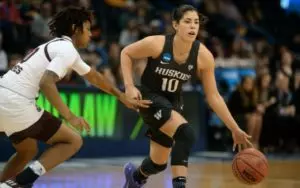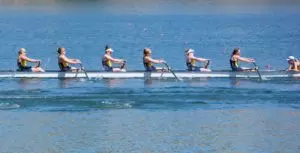The switch from high school to college athletics is something that all athletes who are pursuing collegiate careers must eventually face once they make it to graduation. Although the transition may not seem like a big deal, many athletes who have gone to the college level have stepped away from their sport after the first or second year due to overload on both academics and athletics. The expectations are much more rigorous and you are held at a higher standard, making the adaptation harder than most think. Here are three big adjustments for recruits to consider.
Related: Four Key Steps to Manage Your Recruiting Process as a High School Athlete
The Workload
The main thing incoming athletes don't realize is the amount of training that is done at the college level. Although it may vary depending on Division I, II, or III, the amount of training, lifting, and conditioning that is done is typically significantly more demanding on your body at the college level. Being in season especially, a loaded schedule of practice and games/meets, all while adjusting to new classes and routines can mess with your body both mentally and physically. Although you have classes, practices, and games in highschool, the intensity and quantity almost always is never as much as it is in college. The volume of activities will definitely be something you'll have to adapt to.
A New Social Life
Trying to fit in a social life is also another huge adjustment to make when becoming an athlete in college, as there is less time to go out and have the typical “college experience” that other students are having and enjoying. Feeling as though you are burnt out and maybe missing out on the fun are typical feelings when being a part of a collegiate sports team.
Related: Rate your Coaches, Facilities, and Campus Visits
Scholarship Stress
If you are on any scholarship it's important to maintain your status by performing well and proving yourself to be committed to the program. There is way less room for error and this can be a tough lesson for newbies to learn. Anything you do as a college athlete reflects back on the whole team–this means you are representing the athletic department in everything you do both on and off campus (and if you do something stupid, you guessed it–your scholarship can be at risk, too!). Being responsible and remembering to carry yourself the popper way are other examples of what is expected and how the standards are raised in college.
When making the transition, go into college preparing yourself for the elevated expectations and anticipate that you will have to adjust to a new lifestyle. It may not be easy at first, but the more you learn and grow, you'll develop knowledge and new characteristics that will help you succeed on your journey as a college athlete.
Have an idea for a story or a question you need answered? Want to set up an interview with us? Email us at [email protected]
* Originally published on July 18, 2022, by Sarah Borer







